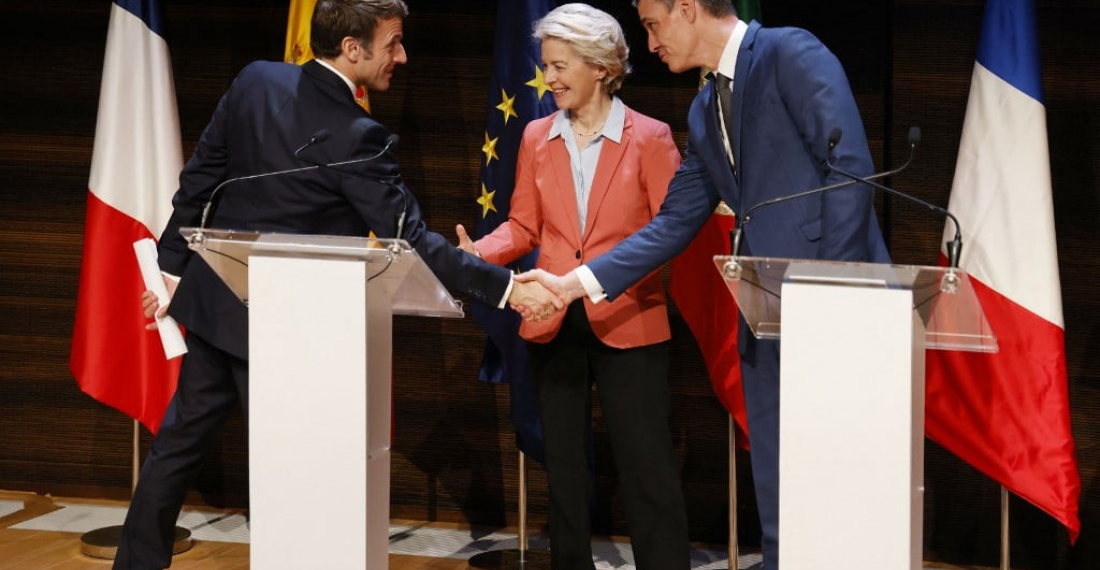The leaders of France, Portugal and Spain announced on Friday (9 December) that the undersea pipeline between Barcelona and Marseille, expected to be completed by 2030, will transport exclusively hydrogen.
Also present at the meeting in Alicante, European Commission President Ursula von der Leyen said the H2Med project "goes in the right direction" as it "has the potential to help us build a real European hydrogen backbone."
"We will produce ten million tonnes of renewable hydrogen in the EU by 2030 and we plan to import in addition another 10 million tonnes. Hydrogen will have to reach our industry. This is why we also identified a series of strategic corridors including one crossing Europe from West to East, via the Iberian Peninsula."
"This is why today I warmly welcome this agreement between France, Spain and Portugal", Von der Leyen said.
Announced at an EU summit in October, the pipeline offers an alternative to the defunct 2003 MidCat pipeline project which was to have carried gas across the Pyrenees from Spain to France. It was abandoned in 2019 over profitability issues and objections from Paris and environmentalists.
The new pipeline is estimated to cost €2.5 billion ($2.6 billion) and be able to transfer two million tonnes of hydrogen annually. The European Commission has declared the project a "project of common interest", meaning it can receive up to 50% of its cost from EU funds. In addition, the EU has unveiled a €210 billion plan, RePowerEU, to stimulate the energy transition, diversify energy sources, and enhance connections between member states.
Portugal produces the most cost-effective renewable hydrogen in the EU, and Hydrogen Europe estimates that the decarbonization of hydrogen will take $15 trillion between 2022 and 2050.






